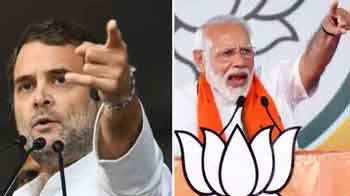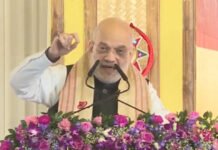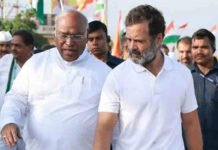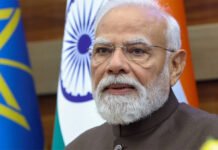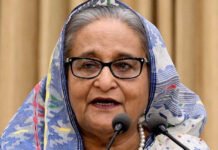For the first time in 72 years, India is poised to hold elections for the post of Lok Sabha Speaker. This unprecedented event comes after the ruling BJP-led NDA and the opposition failed to reach a consensus on a candidate. The historic election sees BJP MP Om Birla pitted against veteran Congress leader K Suresh, marking a significant moment in Indian parliamentary history.
Background of the Lok Sabha Speaker Election
The role of the Lok Sabha Speaker is crucial in maintaining the decorum and functionality of the Parliament. Traditionally, this position has been filled through consensus between the ruling party and the opposition. However, in a break from tradition, the inability to agree on a candidate has led to the necessity of an election.
Candidates and Their Political Stature
Om Birla – NDA Candidate
Om Birla, the BJP MP from Kota, emerged victorious in the general election . His candidature is backed by the NDA, which is leveraging his experience and popularity within the party. Birla’s parliamentary journey and his reputation as a seasoned politician make him a formidable candidate for the Speaker’s position.
K Suresh – Opposition Candidate
The opposition has fielded K Suresh, a veteran leader from the Congress party. Suresh’s long-standing political career and his experience in legislative procedures position him as a strong contender. His selection signifies the opposition’s commitment to presenting a capable alternative to the NDA’s nominee.
Efforts to Build Consensus
In an attempt to avoid an election, the government deployed Defense Minister Rajnath Singh and Parliamentary Affairs Minister Kiren Rijiju to negotiate with the opposition. Despite these efforts, the opposition, under the India faction, chose to consider its options, leading to the current electoral scenario.
The Deputy Speaker Position
Historically, if a consensus is reached on the Speaker, the Deputy Speaker post is offered to the opposition. This tradition was highlighted by Congress MP Rahul Gandhi, who reiterated the importance of maintaining this practice. The post of Deputy Speaker has been vacant since 2019, following the tenure of AIADMK’s M Thambi Durai.
The Consensus Challenge
The path to a consensus was fraught with challenges. Rajnath Singh’s call to Mallikarjun Kharge, the Congress party president, aimed at garnering support for the NDA candidate, was met with demands for the Deputy Speaker post to be reserved for the opposition. The subsequent delay in a follow-up call from Singh left the opposition wary and firm in their stance.
Protem Speaker Controversy
Adding to the tension was the appointment of Protem Speaker Bhartruhari Mahtab. Opposition leaders accused the government of deviating from the tradition of appointing the most senior Lok Sabha member to this temporary position. This controversy further strained the relations between the government and the opposition, casting a shadow over the proceedings of the 18th Lok Sabha.
First Day of the 18th Lok Sabha
The inaugural session of the 18th Lok Sabha was marked by intense political drama. Prime Minister Narendra Modi and Mallikarjun Kharge engaged in a war of words over the Emergency of 1975, overshadowing the day’s proceedings. Amidst this backdrop, 262 MPs, including the Prime Minister, took their oaths, while the opposition staged a protest within the Parliament premises.
Opposition’s Protest
The India Block MPs, led by Rahul Gandhi, voiced their dissent by raising “save democracy” slogans and displaying copies of the Constitution. This protest underscored the deep-seated dissatisfaction among the opposition ranks regarding the current political climate and procedural deviations by the government.
Significance of the Election
The upcoming election for the Lok Sabha Speaker is not just a procedural formality but a significant event with broader implications for Indian democracy. It represents a test of the parliamentary traditions that have upheld the functioning of the Lok Sabha for decades. The election’s outcome will set a precedent for future interactions between the ruling party and the opposition.
Conclusion
As India stands on the cusp of a historic electoral event, the focus remains on how this will shape the future dynamics within the Lok Sabha. The election for the post of Speaker, after 72 years, underscores the evolving political landscape of the country. Both Om Birla and K Suresh represent the contrasting visions of the NDA and the opposition, respectively. The outcome will not only determine the leadership of the Lok Sabha but also reflect the broader democratic values and traditions that India upholds.

